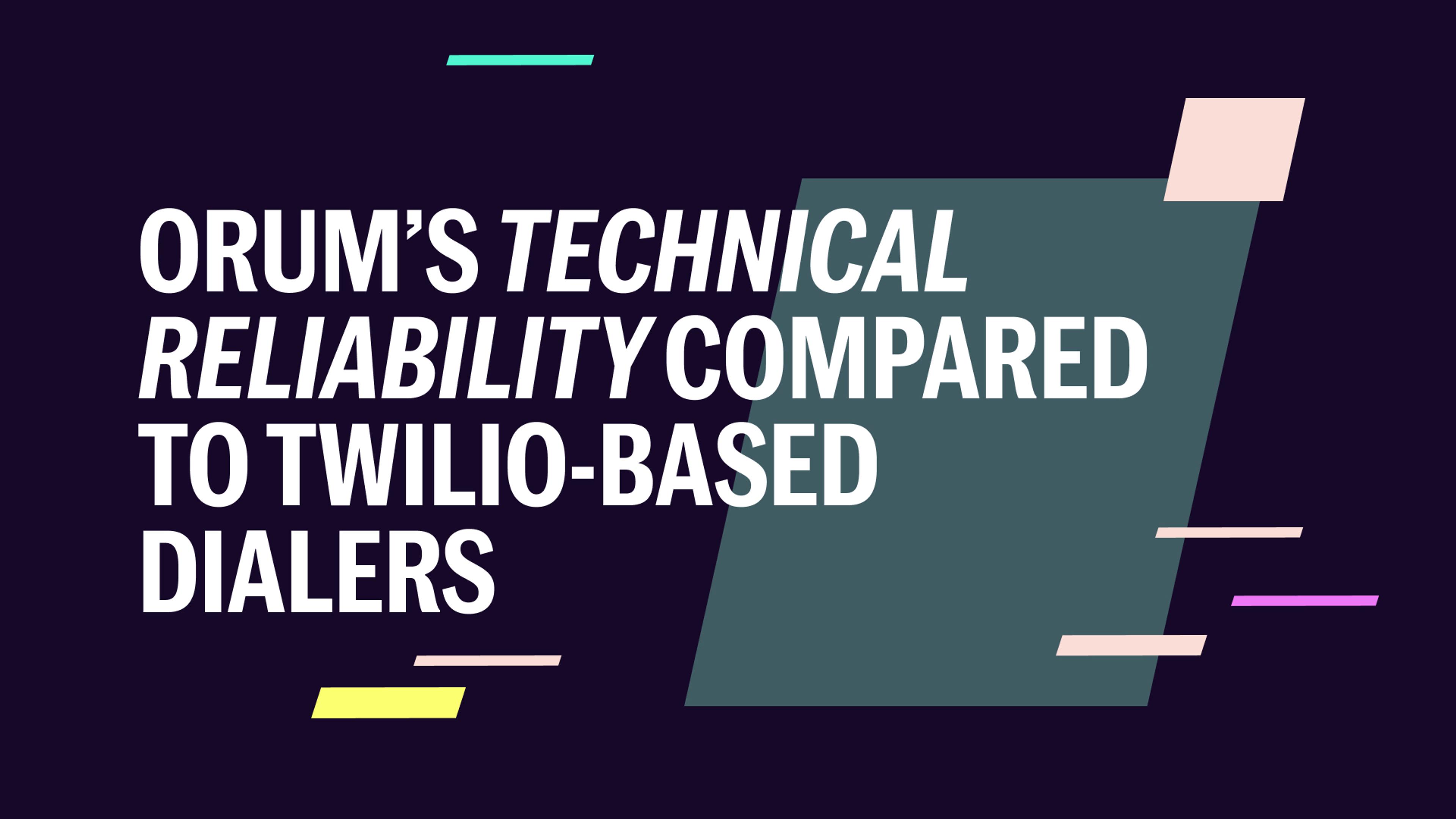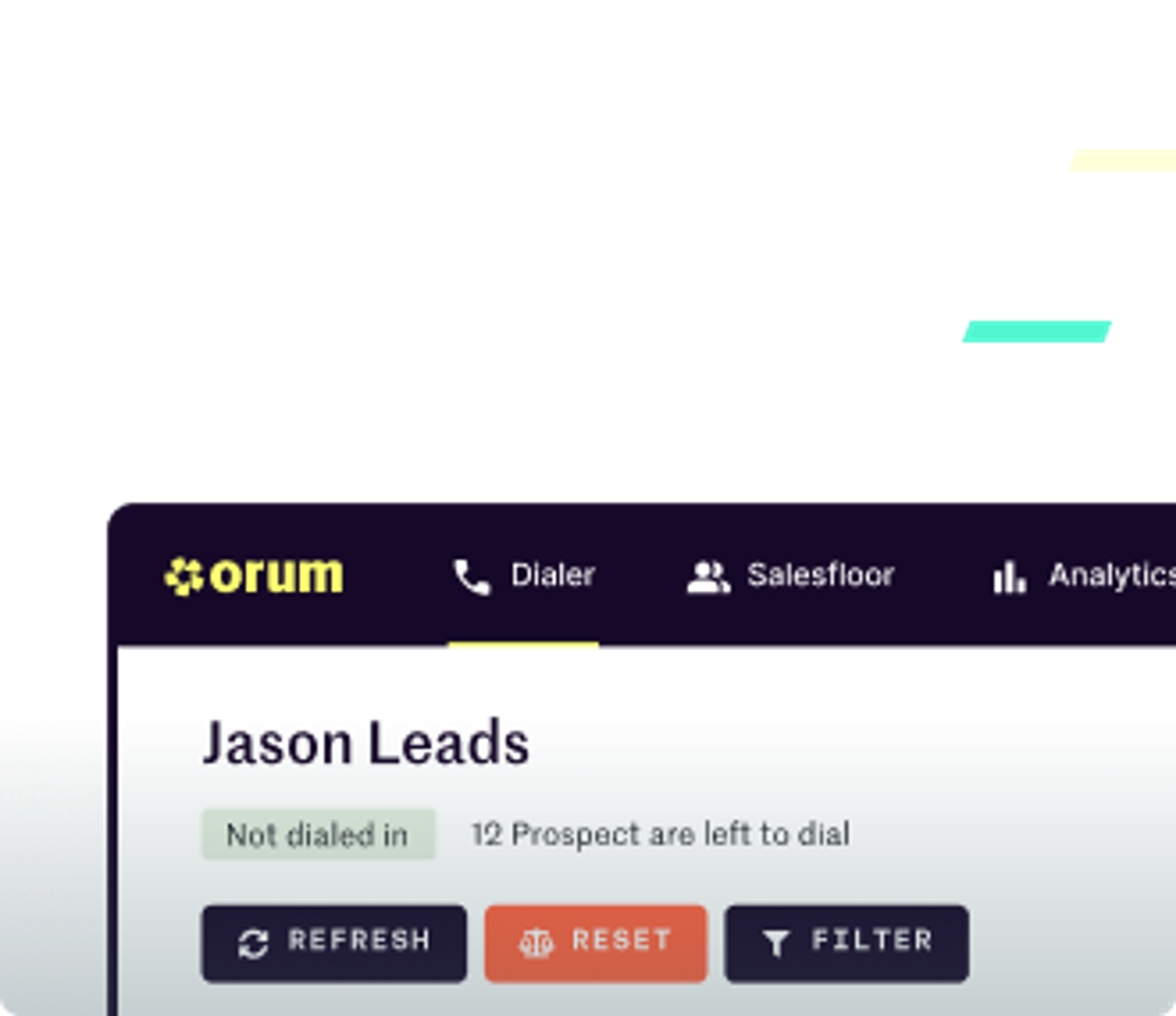Orum vs. Twilio-Based Dialers: Technical Reliability


When evaluating dialers, it’s easy to assume they’re all built on the same stack. But the technical foundation of a dialer makes a massive difference in reliability, speed, and—ultimately—revenue. Here’s a breakdown of why Orum’s purpose-built dialer outperforms Twilio-based alternatives when it comes to technical reliability.
Purpose-Built Telephony Infrastructure vs. Patchwork Assembly
Orum’s dialer is engineered end-to-end with a single goal: helping reps connect faster and more often. Orum has built its telephony stack from the ground up, with smart failover systems, AI-optimized routing, and performance-monitoring tools baked in. It’s not a wrapper over another platform—it is the platform.
Twilio-based dialers are essentially custom apps built on top of Twilio’s API. That means reliability depends on both the app’s code and Twilio’s uptime. Any issue—whether in app logic, Twilio’s infrastructure, or the glue code in between—can result in dropped calls, failed dials, or slow performance. You’re betting on two systems working together seamlessly under stress.
Smart Call Routing vs. Static Logic
Orum uses dynamic call routing with features like Boost Connect, which automatically selects the best-performing number for each dial based on historical data, region, and telco responsiveness. This leads to higher connect rates and fewer flagged/spam calls—a massive reliability edge when your team is dialing at scale.
Twilio-based dialers typically rely on static routing logic, unless a developer has custom-built algorithms (and maintains them). That means call performance can vary drastically and unpredictably, especially across regions.
Real-Time System Redundancy and Monitoring
Orum has built-in redundancy across providers, automatic fallback protocols, and live performance monitoring. If one route goes down, calls get rerouted without a hitch. This is the kind of always-on reliability enterprise sales teams need.
With Twilio, you’re largely dependent on their status page. If there’s a partial outage or latency, your team often can do nothing except wait or file a support ticket with no SLA. That’s not scalable, and certainly not revenue-safe.
AI-Integrated Performance Optimization
Orum constantly benchmarks call performance through AI analytics, using live telemetry to improve both platform reliability and rep outcomes. Every call contributes to a learning loop that tightens system performance over time.
A Twilio-based dialer would need to build this from scratch—and maintain it continuously. That’s not realistic for most teams, and any lag in updates can degrade performance or reliability without warning.
If sales is mission-critical to your business, you don’t want your tech stack to hinge on API glue, outsourced monitoring, or fragmented responsibility.
Orum delivers an enterprise-grade platform with built-in intelligence, system-level resiliency, and the fastest path to a live conversation, while Twilio-based solutions simply can’t guarantee the same control or reliability.





